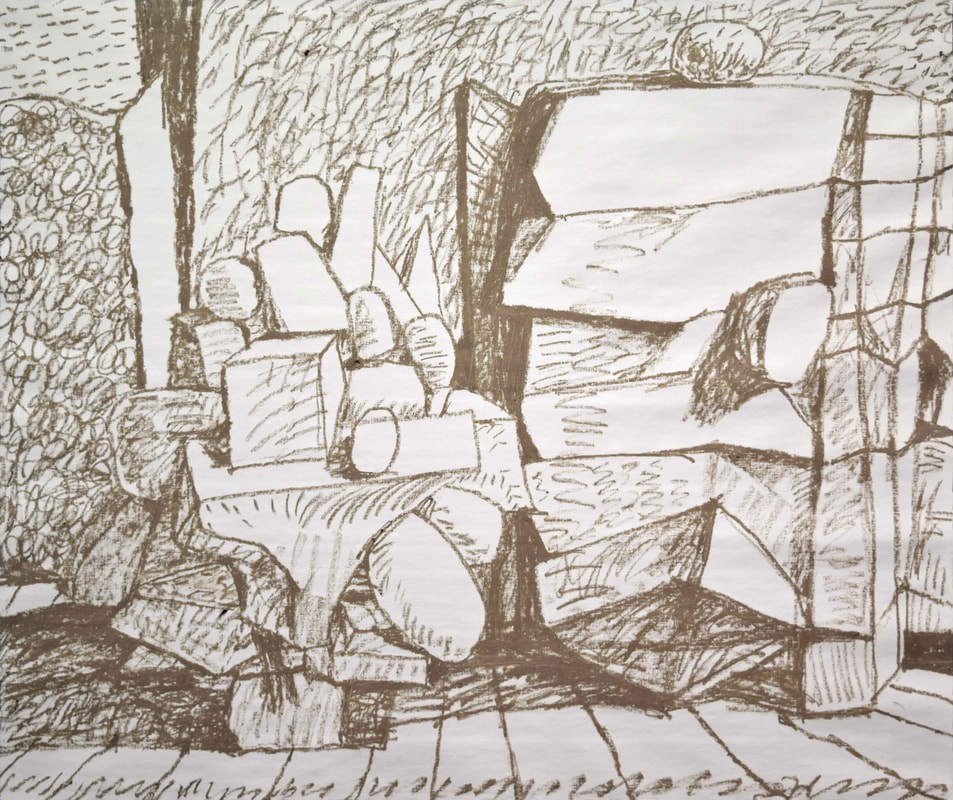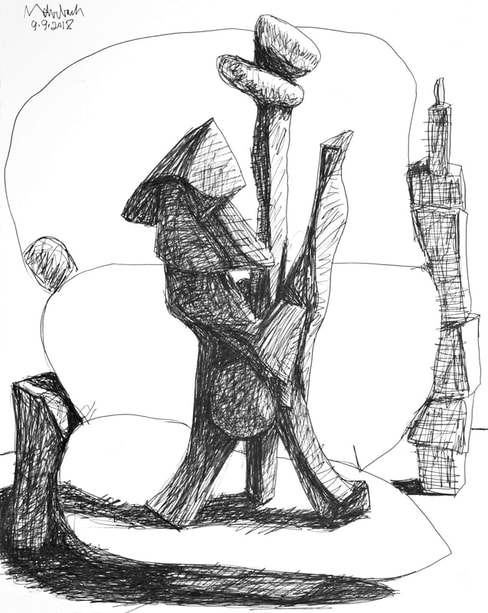 "Burnt Norton" (2018 No.8, state 1), oil on canvas, 55.5x66 inches {"What might have been is an abstraction; Remaining a perpetual possibility; Only in a world of speculation. What might have been and what has been point to one end, which is always present. Footfalls echo in the memory." -T.S. Eliot, "Burnt Norton"} T.S. Eliot's Burnt Norton (1935) is one of my favorite poems. "The philosophical basis for the poem can be explained since the discourse on time is connected to the ideas within St. Augustine's Confessions. As such, there is an emphasis on the present moment as being the only time period that really matters, because the past cannot be changed and the future is unknown. The poem emphasizes that memory must be abandoned to understand the current world, and humans must realize that the universe is based on order. The poem also describes that although consciousness cannot be bound within time, humans cannot actually escape from time on their own." (quote from Wikipedia) The relevance of Burnt Norton to my work is great. I struggle to be here, creating myself and my art; I must deal with my past and the past that is art history. Art is like The Law, it is rich with precedent which must be respected, and assimilated, in order to move toward self-understanding and correctness. The first lines of Eliot's Burnt Norton are, "Time present and time past are both perhaps present in time future, And time future contained in time past." Am too ambitious with my Burnt Norton? I left my previous work (Along for Ride) with fear of failure. As I begin my newest painting I simultaneously leave the previous painting. Have I committed Original Sin? I am vainly trying to go places that cannot, must not, be exercised. In my new painting I will stay with the solidly known. I will not stray from my present day truth. To explain this better I quote Wikipedia again: "Eliot believed that Burnt Norton could benefit society. The poem's narration reflects on how humankind is affected by Original Sin, that they can follow the paths of either good or evil, and that they can atone for their sins. To help the individual, the poem explains that people must leave the time-bound world and look into their selves, and that poets must seek out a perfection, not bound by time in their images, to escape from the problems of language." I am not religious; this Original Sin thing is a stretch for me. T.S. Eliot was religious. The concept of Original Sin to me is simple recognition of the deceptive power of previous knowledge, previous success, previous failure. To be successful I must "leave the time-bound world and look into [myself]; [as an artist I] must seek out a perfection not bound by time in [my] images [In order] to escape from the problems of [the images from my past and those of art history]." Yesterday's drawing is much the same. I am trying to codify the pictorial rules of my art. "Although logos is common to all, most people live as if they had a wisdom of their own." Comments are closed.
|
To read my profile go to MEHRBACH.com.
At MEHRBACH.com you may view many of my paintings and drawings, past and present, and see details about my life and work. Archives
July 2024
|

 RSS Feed
RSS Feed